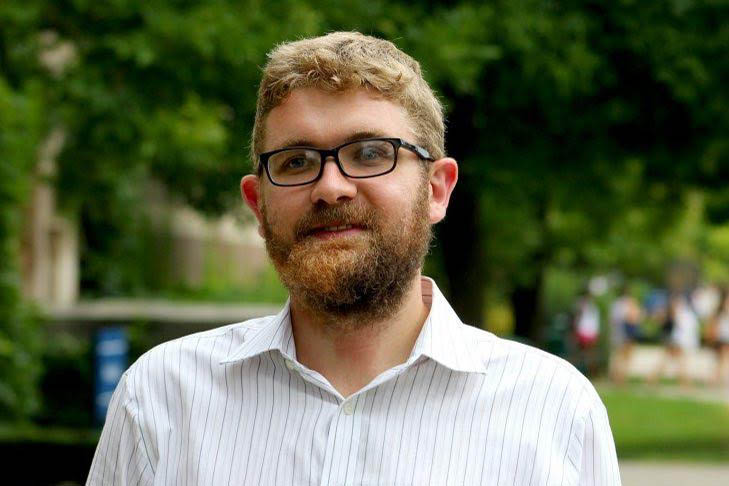
Professor Lytton Smith (Image provided)
Summary
“Poetry and the Expectation of the Border” explores a set of poetic texts—the Transborder Immigrant Tool (TBT); Amy Sara Carroll’s “The Desert Survival Series/La serie de sobrevivencia del desierto”; and Claudia Rankine and John Lucas’s video poem “Zidane” and the version of that poem included in Rankine’s book Citizen—against the backdrop of recent United States Customs and Border Protection investment in autonomous surveillance towers, the development of the “100 mile” expanded border region, and 2022 practices by Republican governors to relocate migrants to the U.S. to Democrat states. I argue for the existence in the poetry of what I term “the expectation of the border”: the moment when we name the border not as a graspable and unchangeable line in physical space and legal jurisdiction, but as a conceptual reckoning with definitions of community, including but not limited to citizenship status. Drawing on citizenship theorist Engin Isin’s argument that “poetic articulation” especially “captures the essence of the political,” this study suggests poetry as a specialized intervention in border politics and definitions of citizenship, including the conditions of the “hostile environment.”
Research questions:
- How can contemporary poetry offer new or more complex understandings of what it means to hold U.S. citizenship?
- What is the relationship between poetic techniques, such as the use of lineation and line breaks, and the practices and habits that make up citizenship status?
- Can poetry play more than an aesthetic role in citizenship, instead offering ways to depict and dramatize ethical engagements for its readers?
What does this research build on?
That poetry helps us reimagine citizenship is something leading theorists in citizenship studies have argued: Professor Engin Isin, for instance, has pointed out that “we have only glimpsed the deep affinities between poetics, polis and the political”
How does the research add to the discussion?
My research focus on the ways 21st century poets explore and reshape citizenship, arguing that they do more than document how citizenship works but offers alternatives ways of being and acting as a citizen.
How might this research affect policy?
This research is part of a wider project, Hostile Environments: Policies, Stories, Responses, which connects literary analysis and creative practice to campaigning for political change in international sites. This article is one of six published as part of “The Function of Stories in Hostile Asylum Regimes” and was developed alongside white papers written for politicians by the wider research group.
Citation:
Smith L (2023) Poetry and the expectation of the border. Front. Hum. Dyn. 5:1141624. doi: 10.3389/fhumd.2023.1141624
More Research Briefs
Call for Research
We invite SUNY Geneseo faculty to submit peer-reviewed research from the last three years to be added to this site.
